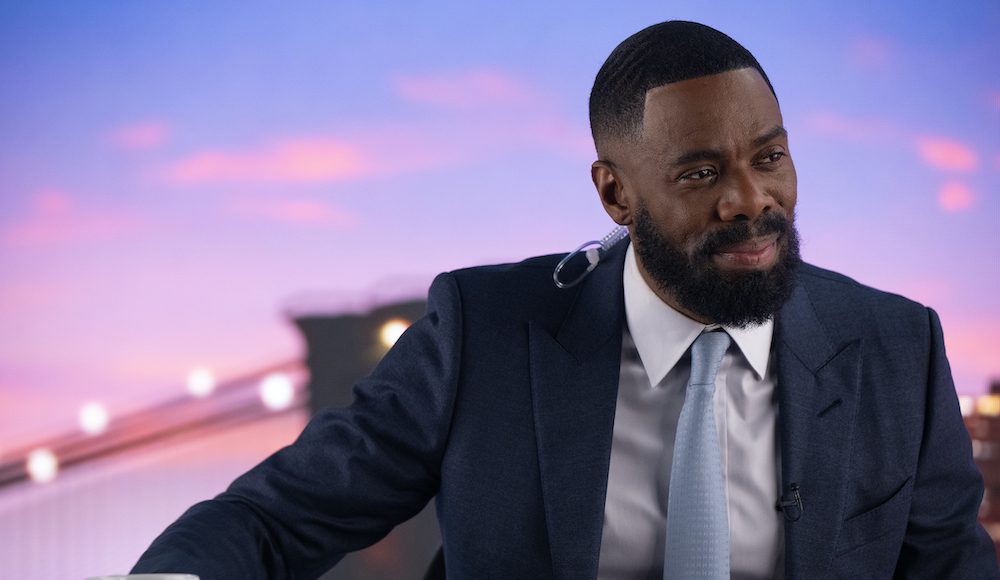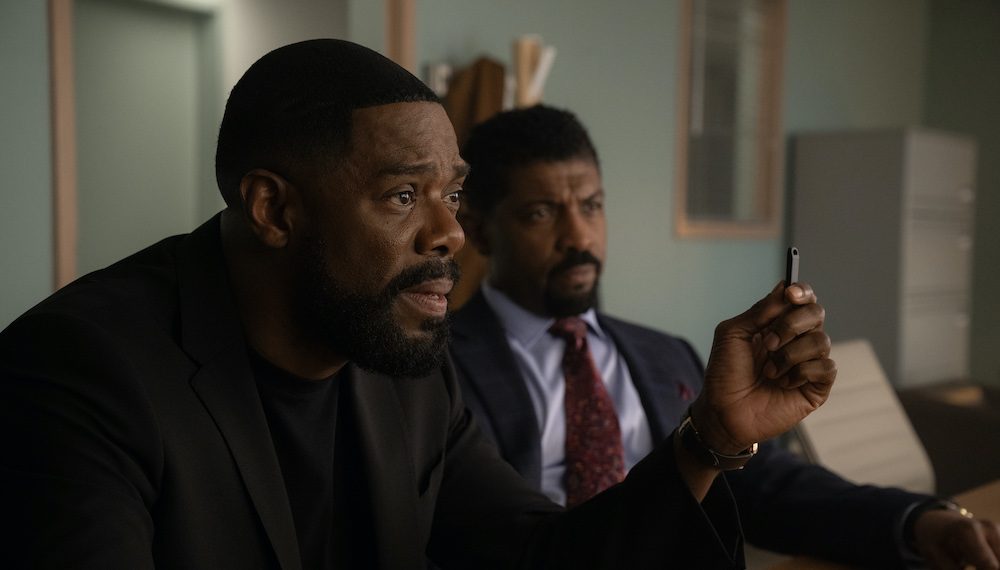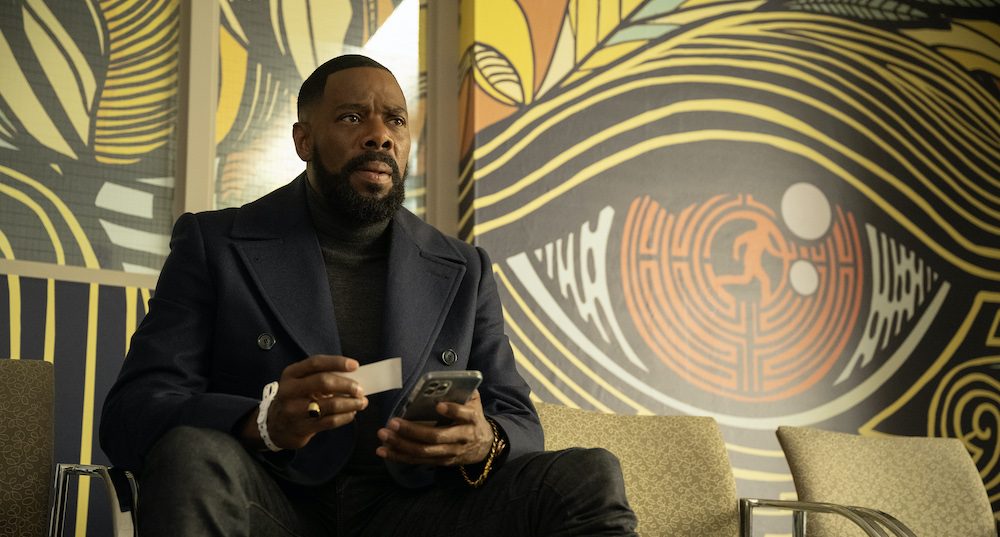Netflix’s ‘The Madness’ is a conspiracy crime thriller series that follows the story of a man whose life is upturned after being at the wrong place at the wrong time. The protagonist is a media pundit named Muncie Daniels, who is in the prime of his life. Everything is going great for him, except perhaps on the personal front. One weekend, he rents a cabin in the Poconos to get some alone time to write his book. But it turns into a nightmare when he witnesses a murder, is almost killed by the murderers, and, when he calls the cops, is turned into a suspect. As Muncie tries to clear his name, he discovers that the murder and his framing for it is part of a much bigger plan. Created by Stephen Belber, the limited series delves into some pretty relevant issues, making the story and the character seem extremely relatable.
Muncie Daniels and His Quest for Truth is Entirely Fictional
‘The Madness’ is a fictional story concocted by Stephen Belber, who, with executive producer VJ Boyd, also serves as the showrunner of the Netflix series. The idea behind creating the story and Muncie’s character came from reflection on the current state of the world. Considering the number of lies, propaganda, and misinformation that are propelled through media outlets and social media, the entire world appears to be in the grips of madness. It is difficult to believe what you hear on social media, and it is even more difficult to know who is benefitting from all this disinformation and chaos. The show’s creators wondered what it would be like for a common man to get caught up in this web of lies that has the entire system stacked against him, turning him entirely helpless to do anything about it.

While the plot, with its many twists and turns, had to be compelling, the protagonist would be the driving force of the story, and the show’s creators wanted the actor who would fit the bill to the T. They wanted someone who could exhibit the character’s strengths and vulnerabilities and, more importantly, create a bridge with the audience so that they’d feel connected to the protagonist. When Colman Domingo’s name was dropped in the conversation, they knew they’d found their man.
Colman Domingo Could Relate to the Character of Muncie on Some Level
Colman Domingo was attracted to play Muncie because it was a challenge he’d never met before. The character demanded a lot, emotionally and physically, and the actor thought it would be a great change of pace to play him. Moreover, he also found some similarities between himself and the character, the most important of which was the setting of the story in Philadelphia. Hailing from West Philly himself, Domingo was excited to highlight that aspect of Muncie’s background. He even went as far as to get the show to be filmed in the neighborhood where he grew up. The actor revealed that the house where he grew up appears in one of the scenes in the background.

In getting into the skin of the character, Domingo and the show’s writers had some clear markers about what kind of person they wanted Muncie to be. They wanted him to be a pragmatic guy who gives a lot of thought to things and doesn’t easily crumble under pressure. In a behind-the-scenes featurette by Netflix, Domingo revealed that the character is “modeled after these pundits who are respected, at times challenged, even by their own communities. Sometimes looked at as being not Black enough, and then to some folks, too Black.” They also wanted to highlight the fact that Muncie, despite having been an activist in his younger days, had drifted away from his community, which is another source of identity crisis in his arc.
Apart from the mentally and emotionally taxing nature of the story, Domingo also had to prepare for some physically intense scenes. He trained in jujutsu for three weeks in Toronto to ready himself for the challenges that lay ahead during the filming of the series. At the end of the day, he and the show’s creators wanted people to see themselves reflected in Muncie and to connect with him on a deeper level. Through Muncie’s experiences, they want the audience to be more inquisitive about the world around them, to ask more questions, and to engage with the events, rather than simply believing whatever is being peddled to them, or worse, to be entirely apathetic about it all.
Read More: The Madness: Is Price Cigar Company a Real Place?


You must be logged in to post a comment.